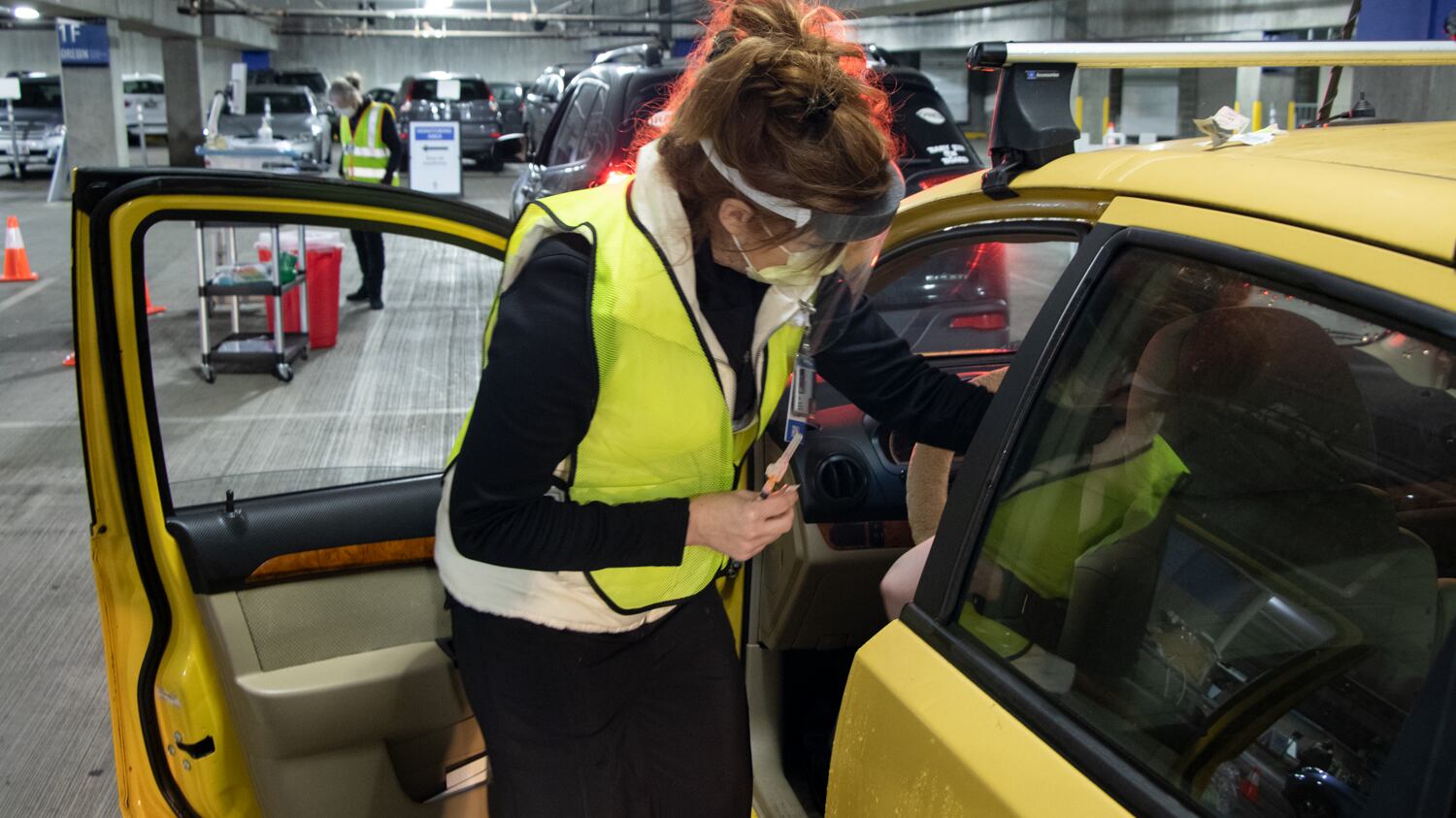Among the many challenges faced by the COVID-19 vaccination rollout: Neither of the two vaccines given emergency authorization are approved for use in children under 16.
That means even more adults need to be vaccinated before Oregon and the nation can contain the virus.
According to calculations by the Oregon Health Authority, 90% of the state's adults need to get the vaccine—a number that is reduced only by the percentage of people who have gained immunity by contracting the virus. The 90% figure is the threshold Oregon needs to hit to reach what's called herd immunity: the point at which the number of people with protection against the disease is so large the virus's spread is slowed within the community.
If 90% of adults get vaccinated, Oregon can reach a target of 70% immunity within the population, according to OHA.
Dr. Anthony Fauci has set the immunity target even higher, at up to 85% of the entire population.
The vaccines, which are currently expected to have an efficacy rate of at least 94%, are only in part about protecting the people who get the vaccine. The hope for vaccination is that the larger community will be protected as well.
"We have shut down segments of society and severely restricted our travel, our socialization and our economy in order to control this thing, and the more people who get vaccinated, the sooner we're going to be able to open things up and live a normal life again," says Dr. Paul Cieslak, medical director for Communicable Diseases and Immunizations at OHA.
Cieslak came up with the 90% figure in response to a question from WW.
Public health experts hope the vaccine will ensure that those who receive it won't spread the disease—a point on which there is some data in the Moderna vaccine studies but that has not been thoroughly proven.
Cieslak, who himself had one dose of the vaccine Jan. 4 because he sees patients once a month, expressed hope that the populations that most need protection from the disease will be ready to get a shot.
"We can substantially relieve the burden on our health care system if we vaccinate the most vulnerable—the elderly and those with underlying conditions, like diabetes and obesity," he tells WW. "Because the virus is so prevalent, and hospitalization is so significant, everyone is aware of it, and I think those populations are going to be eager to receive the vaccine, so I'm optimistic about their willingness to be vaccinated."
Plenty of Oregonians are at least hesitant about getting the vaccine—the subject of last week's WW cover story.
Related: Ending the Pandemic Means Getting Vaccinated. But Many Oregonians Will Be Hard to Convince.
In a University of Oregon survey last month, nearly a quarter of Oregonians said they wouldn't get the vaccine. That level of skepticism, if it holds, means the pandemic will end only after enough people contract the virus and either recover or die from it.
In another interview with WW, Benjamin Clark, an assistant professor at UO who conducted the survey, talked about the best means to persuade people to get the vaccine and what the “new normal” could look like if only some of the population has been vaccinated.

